The METAvivor Research Program was established in 2009 with the specific goal of funding stage IV metastatic breast cancer research to one day, end death from metastatic breast cancer (MBC). The following list includes current and past grant recipients along with their progress reports.
If you would like to go back to the main research page, click here.

Swarnali Acharyya, PhD
Columbia University Irving Medical Center (CUIMC)
Presented by The Met Gala Santa Clarita in honor of Amy Steffe Lohmann and Eva Miranda Crawford
Targeting S100A9 signaling to treat therapy-resistant brain metastases in HER2+ breast cancer

Jill Bargonetti, PhD
City University of New York at Hunter College
Presented in honor of Caroline McIntyre and in memory of Sandy Gagliardi, members of Living with MBC Support Group in DENJPA
Targeting Breast Cancer Metastasis by Combination Inhibition of CXCR4 and MDM2/MDM4

Chen Changyan, PhD
Northeastern University, Boston
Presented by #LightUpMBC Ambassador Team In Memory of Jessica Moore
Repurposing Bryostatin-1 (a Protein Kinase C Inhibitor-Based Drug) for Treating Metastatic Breast Cancer
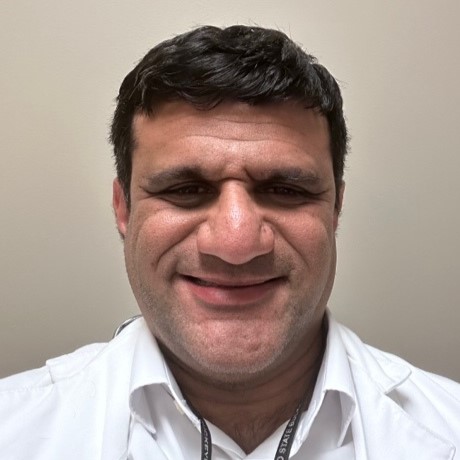
Mathew Cherian, MD
The Ohio State University Comprehensive Cancer Center
Presented by the The Meadowbrook Country Club Rally For The Cure Fundraiser in memory of Elizabeth Stevens
Sulfatase 2 inhibition to intensify chemotherapy and immunotherapy responses in metastatic triple-negative breast cancer

Monica Fornier, MD
Memorial Sloan Kettering Cancer Center
Presented in memory of Mrs. Holli Hoelscher Simon
A pilot study of the efficacy and safety of the sclerostin-inhibitor romosozumab as a bone-modifying agent for patients with metastatic breast cancer to bones, and osteoporosis or osteopenia with high risk of fracture
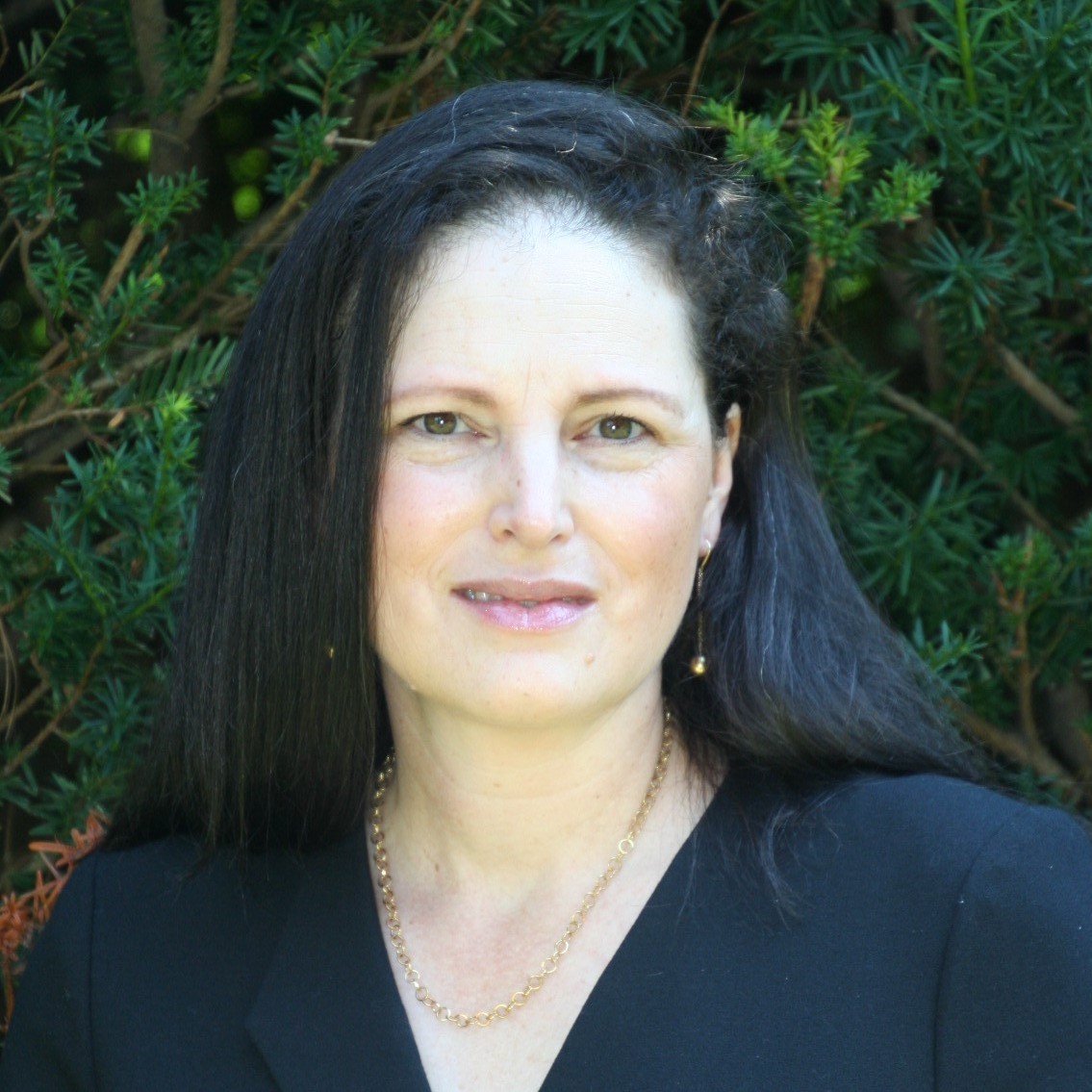
Rinath Jeslesohn, MD
Dana Farber Cancer Institute
Presented by the Philadelphia METAvivor Gala in memory of Kerry O'Riordan McAdam and in honor of Jacqueline Beck
Integrative multi-omics and immune profiling with machine learning for optimization of treatment in metastatic hormone receptor positive breast cancer

David Kamson, MD, PhD
Sidney Kimmel Comprehensive Cancer Center at the Johns Hopkins Hospital
Presented by Jacqueline Vranicar - In memory of Lindsay Block
A Translational Observational Biorepository and Management Study In Patients with Leptomeningeal Metastasis: The BIOLEPT Study

Efi Kokkotou, MD, PhD, DSc
Beth Israel Deaconess Medical Center
Presented by the Minneapolis Metsquerade
Repurposing a Melanin-concentrating hormone (MCH) antagonist for the treatment of metastatic breast cancer

Kathleen McEnnis, PhD
New Jersey Institute of Technology
Presented by #LightUpMBC Ambassadors in memory of Nola Addante and all lives lost too soon to MBC
Mesenchymal stem cells as platinum nanoparticle delivery system for metastatic breast cancer treatment

Funda Meric-Bernstam, MD
The University of Texas MD Anderson Cancer Center
Presented By Jacquelyn Vranicar and Jacquelyn and Lindsay’s METAvivor Team in memory of Kelsey Granowski
Optimizing TROP2-targeted antibody-drug conjugate therapy in metastatic breast cancer
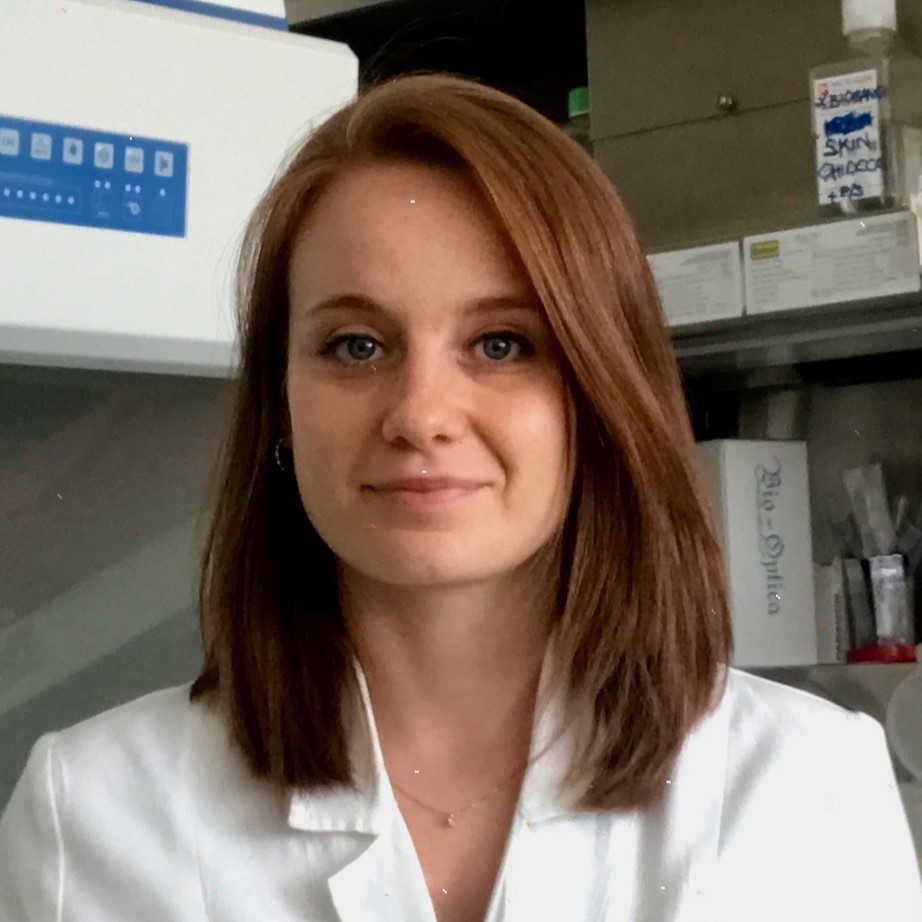
Stefania Morganti, MD
Dana-Farber Cancer Institute
Presented by the Philadelphia METAvivor Gala in memory of Kerry O'Riordan McAdam and in honor of Jacqueline Beck
Tracking minimal residual disease via circulating tumor DNA in patients with HER2+ metastatic breast cancer and exceptional response to therapy

Naiara Perurena, PhD, PharmD
Harvard Medical School and Brigham and Women's Hospital
Presented by the Minneapolis Metsquerade In Memory of Lindsay Block
Developing combinatorial therapeutic strategies for metastatic HER2+ breast cancer

Angelina Regua, PhD
The University of Texas Health Science Center
Presented by Tonya’s Hope In Memory and Honor of Tonyia Lucas
Understanding and overcoming resistance of breast cancer brain metastases to RET inhibition,

Lin Zhang, PhD
The University of Texas MD Anderson Cancer Center
Presented in honor of Ashleigh Griffin
Altering the Metabolic Tumor Microenvironment to Impede Breast Cancer Brain Metastasis
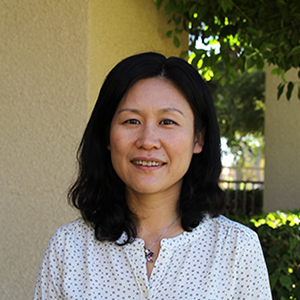
Min Yu, PhD
The University of Maryland School of Medicine, Baltimore
Presented in honor of Tara Kuipers - Creator of #LightUpMBC Color Fun Run
Targeting IGFBP3 signaling as a novel therapy for ESR1-Y537S mutant driven bone metastasis

Theresa Vincent, PhD
New York University Grossman School of Medicine
Presented by The Met Gala Santa Clarita in honor of Eva Miranda Crawford and Amy Steffe Lohmann
Targeting breast cancer brain metastasis using a brain penetrable RNA Polymerase I inhibitor

Ghada Sharif, PhD
Lombardi Comprehensive Cancer Center
Presented by Color Street Foundation
Targeting Occult Cancer Cell Subpopulations Driving Metastases Growth

Andrew D. Seidman, MD
Memorial Sloan Kettering Cancer Center
Presented by Cycle4Helen in honor of Helen O'Leary
Untangling the role of the brain metastasis microenvironment in HER2 positive breast cancer brain metastases to inform rational systemic treatment strategies

Axel Schönthal, PhD
University of Southern California
Presented in memory of Kerry O'Riordan McAdam and In Honor of Jacqueline Beck
Controlled Opening of the Blood-Brain Barrier to Enable Effective Therapeutic Access to Breast Cancer Brain Metastases

Jitesh Pratap, PhD
Rush University
Presented by METAvivor's community of followers on social media in honor of all of those touched by metastatic breast cancer
Targeting microtubule dynamics and endosomal trafficking for bone metastasis of breast cancer

Lluis Morey, PhD
Sylvester Comprehensive Cancer Center, University of Miami
Presented by The Pittsburgh Metsquerade in honor of members Amy Fletcher, Bindy Koontz, Roberta Thomas Szpara and Laura Williams
Dual targeting of an epigenetic machinery and a cellular receptor to block metastatic breast cancer

Hui-Wen LO, PhD
McGovern Medical School at The University of Texas Health Science Center, Houston
Presented by METAvivor's community of followers on social media in honor of all of those touched by metastatic breast cancer
Targeting Breast Cancer Brain Metastases by an FDA-Approved Antifungal Drug and its Novel Analog

Laurie Littlepage, PhD
University of Notre Dame
Targeting Endocrine Therapy Resistance in Bone Metastasis

Jonathan Kessler, MD
City of Hope / Beckman Research Institute
Presented by Minneapolis Metsquerade in memory of Toniya Lucas and Rachael Masters
Combination of Immune Checkpoint Inhibitor and Hepatic Radioembolization for the Treatment of Liver-Dominant Metastatic Breast Cancer

Ayesha Shajahan-Haq, PhD
Georgetown University
Presented by METAvivor's community of followers on social media in honor of all of those touched by metastatic breast cancer
Application of a novel ruthenium-based anticancer therapy in ER+ metastatic breast cancer

Bisrat Debeb, DVM, PhD
The University of Texas MD Anderson Cancer Center
Targeting sEcad - PDI axis for the treatment of breast cancer brain metastasis

Gokul Das, PhD
Roswell Park Comprehensive Cancer Center
Presented by METAvivor's community of followers on social media in honor of all of those touched by metastatic breast cancer
Repurposing Tamoxifen to Treat Molecularly Stratified Metastatic Triple Negative Breast Cancer

Katherine Cook, PhD
Wake Forest University School of Medicine
Presented by Lake Norman Metsquerade in memory of Hilary Blake Hamilton
Improving ER+ bone metastatic breast cancer outcomes through metabolic re-programming of the microenvironment

Elvin Blanco, PhD
Houston Methodist Research Institute
Presented by METAvivor's community of followers on social media in honor of all of those touched by metastatic breast cancer
Mitochondrial biogenesis for T-cell priming and enhanced immunotherapy in metastatic breast cancer

Andrei Bakin, PhD
Roswell Park Comprehensive Cancer Center
Presented by #LightUpMBC Ambassador team in memory of Rosylin Weston
Development of Novel Immune Therapy Approaches for Metastatic Breast Cancer

Prasanna Alluri, MD, PhD
The University of Texas Southwestern Medical Center at Dallas
Presented by #LightUpMBC Ambassador team in memory of Jessica Moore
Targeting CDK4/6 inhibitor resistance in patients with metastatic, ER-positive breast cancer

Khalid Sossey-Alaoui, PhD
Case Western Reserve University and MetroHealth Medical Center
Role of YB1 in Triple Negative Breast Cancer Metastasis

Danny Welch, PhD
University of Kansas Medical Center Research Institute
Presented by The Pittsburgh Metsquerade in honor of members: Jill Griffin, Andrea Dimond, Lori Czyzewski, and Sophia Holland
Mitochondrial Modifiers of Metastasis
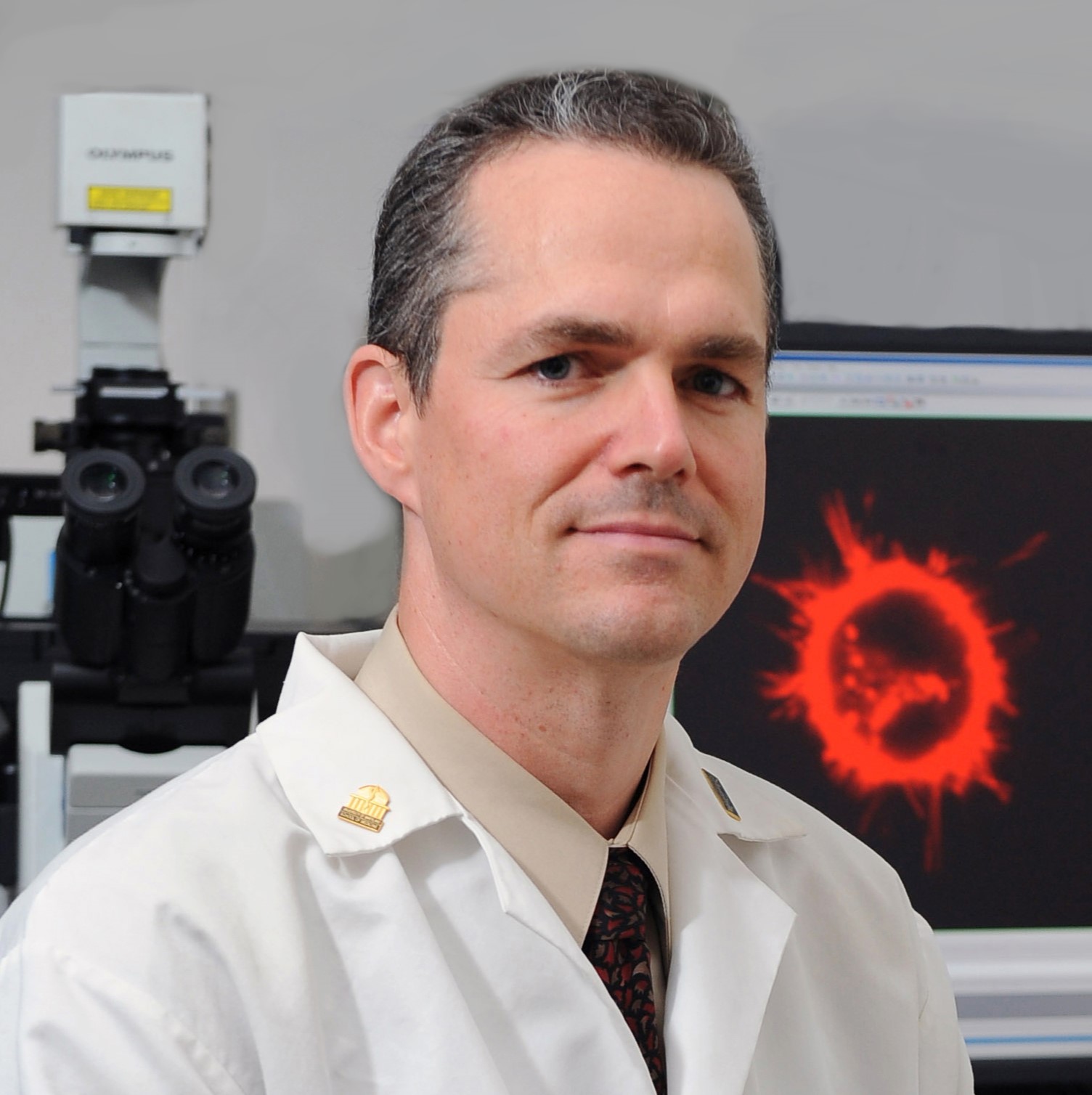
Stuart S. Martin, PhD
University of Maryland, Baltimore
Presented in memory of Kerry O'Riordan McAdam and in honor of Jacqueline Beck
Leveraging combined ctDNA and CTC analysis to optimize treatment for existing bone metastases

Ines Velazquez-Quesada, PhD
Temple University, College of Engineering, Bioengineering Department
Presented in memory of Tonyia Lucas and her Hope To Find A Cure
Impact of the neuron - breast cancer cell interactions on the growth and survival of brain metastasis

Quanyin HU, PhD
School of Pharmacy, University of Wisconsin-Madison
Presented In memory of Andi Myers and Elizabeth Seagraves Murray and those from the support group "Living with MBC in DENJPA" th
Targeted degradation of BET proteins in combination with immune checkpoint inhibitors for treating metastatic triple-negative breast cancer

Ana Gomes, PhD
H. Lee Moffitt Cancer Center & Research Institute
Presented in memory of Molly B. Taylor
Metabolic vulnerabilities of dormant disseminated breast cancer cells
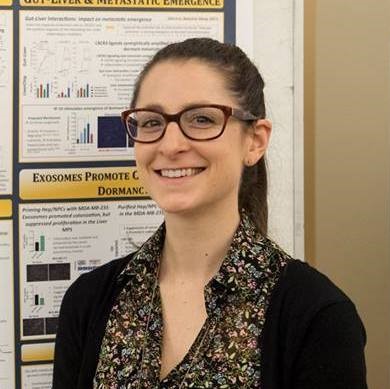
Amanda Clark, PhD
University of Pittsburgh
Presented by Northwest Arkansas Metsquerade, Runway for Research
Extracellular vesicles regulate metastatic breast cancer dormancy in the liver

Jennifer Caswell-Jin, MD
Stanford University School of Medicine
Presented by the Linda (LeClair) Sousa, A Better Dream Foundation in memory of Linda (LeClair) Sousa
Fibroblast growth factor receptor signaling and immune composition in estrogen receptor-positive metastatic breast cancer

Corinne Beinat, PhD, BSc (Hons)
Stanford University School of Medicine
Presented in loving memory of Be Bold and Behold honorees Kathryn Petrides and Lisa M. Laudico
A Theranostic Strategy for Precision Imaging and Treatment of Metastatic Triple-Negative Breast cancer
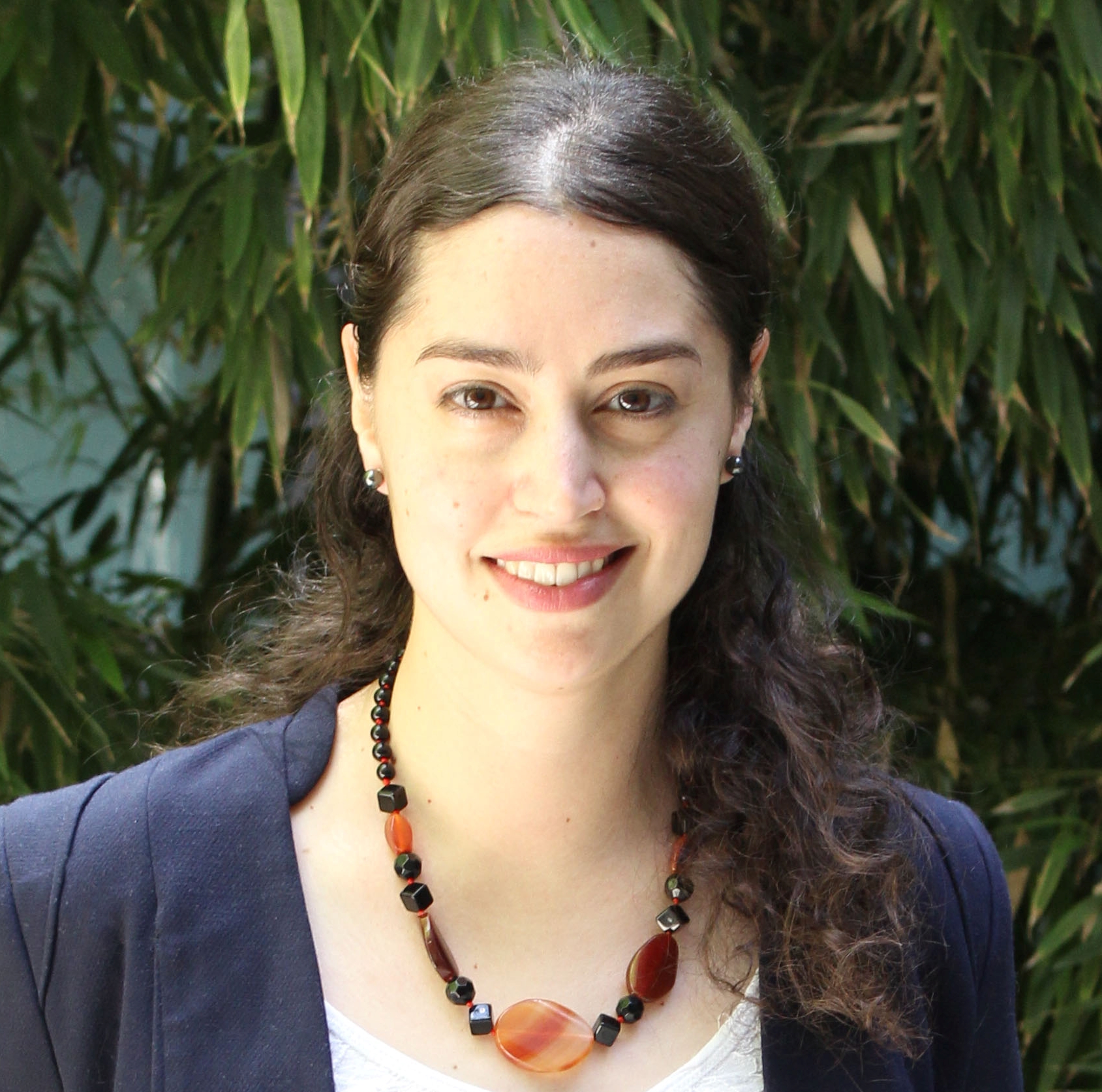
Marjan Rafat, PhD
Vanderbilt University – Nashville, TN
Presented by the Bayhill 9 Holers and Friends, Honoring the Memory of Linda Pizzolato
An engineered bone marrow microenvironment model to investigate the impact of stiffness in breast cancer metastasis

Carol Sartorius, PhD
University of Colorado, Denver, CO
Endocrine therapy driven reprogramming of circulating tumor cell-platelet interactions in driving late metastatic spread of ER+ breast cancer
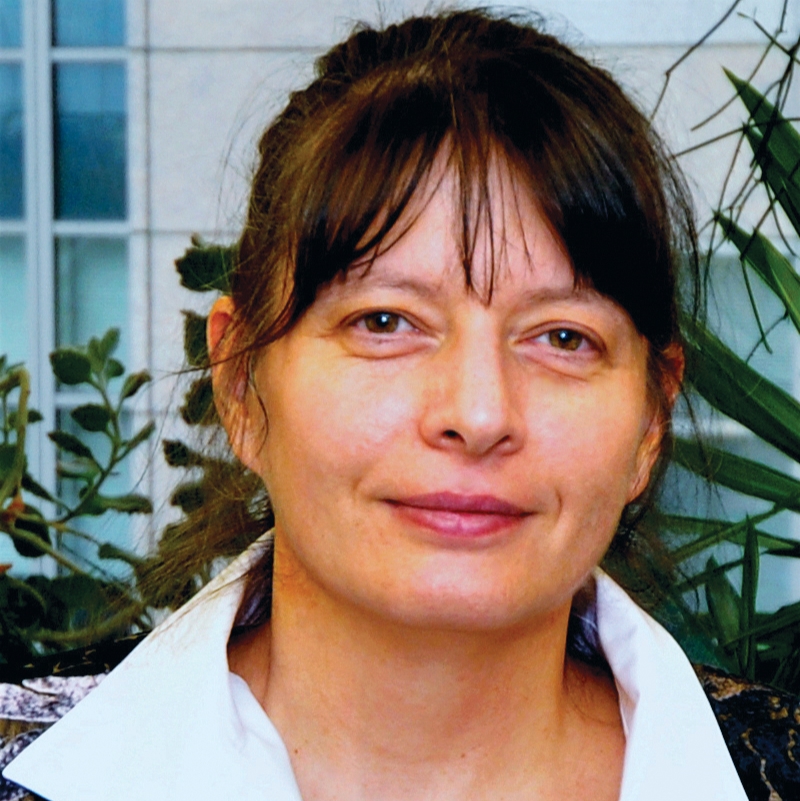
Kornelia Polyak, MD, PhD
Dana-Farber Cancer Institute, Boston, MA
Metastatic niche metabolomes and epigenetic heterogeneity in breast cancer

Sara Tolaney, MD, MPH
Susan F. Smith Center for Women’s Cancers, Dana Farber Institute, Boston, MA
Presented by METAvivors of NJ in Memory of Donna Karlis
Enhancing the immunogenicity of PD-L1+ metastatic HR+ breast cancer via DNA damage

Lisa Carey, MD
The University of North Carolina at Chapel Hill, Chapel Hill, NC
HARMONY: Harnessing the Analysis of RNA expression and Molecular subtype to Optimize Novel TherapY for metastatic breast cancer

Nikhil Wagle, MD
Dana-Farber Cancer Institute
Presented by #LightUpMBC Ambassador team in memory of Jessica Moore
Convergent transcriptional states in resistant ER+ metastatic breast cancer

Robert Schneider, PhD
New York University School of Medicine
Presented by Abbey Rapoport
Inhibition of Regulatory T cell (Treg) selective mRNA translation for the treatment of metastatic breast cancer metastasis

Lalita Shevde-Samant, PhD
The University of Alabama at Birmingham
Presented in memory of Heather Holmes
Altering the metastatic immune niche to eradicate established breast cancer metastases

Gangadhara Sareddy PhD
The University of Texas Health Science Center at San Antonio
Presented in memory of Erica Griffiths, Founder of Living with MBC DENJPA
Targeting TNBC brain metastases using a brain penetrable KDM1A inhibitor

Davide Ruggero, PhD
University of California, San Francisco
Presented by METAvivor Fundraisers in honor of all people living with metastatic breast cancer
ERα is a novel RNA-binding protein controlling a post-transcriptional program underlying breast cancer metastasis

Efi Kokkotou MD, PhD
Beth Israel Deaconess Medical Center
Presented by Minneapolis Metsquerade in memory of Kim Cesarek
Development of a functional predictor assay of therapeutic responses in Metastatic Breast Cancer

Melanie Hayden Gephart MD, MAS
Stanford University
Presented by Be Bold and Behold in loving memory of honorees Jennie Byram and Erica Griffiths
Halting the Progression of Breast Cancer Brain Metastases By Targeting Tumor-Associated Microglia (TAMs)

Jin Chen, PhD transferred to Julie Rhoades
Vanderbilt University Medical Center
Presented by METAvivor Facebook Fundraisers in honor of all people living with MBC
Targeting EphA2 receptor in breast-to-bone metastasis

Changyan Chen, PhD
Northeastern University
Presented by METAvivor Facebook Fundraisers in honor of all people living with MBC
Targeting MGL for Developing Novel Strategy to Treat Refractory Breast Cancer

Jennifer Wenzel, PhD, MS
Johns Hopkins University School of Nursing, School of Medicine (Oncology)
Presented by METAvivor Facebook Fundraisers in honor of all people living with MBC
Metastatic Treatment Decision Navigation: A Community Health Worker Model to Support Black Breast Cancer Patients and Decision Partners

Dipali Sharma, MS, PhD
Sidney Kimmel Comprehensive Cancer Center at Johns Hopkins
Presented by Color Street Foundation
Racial Disparity in metastatic triple-negative breast cancer in African American women: Unraveling actionable molecular determinants

Pranela Rameshwar, PhD
Rutgers University
Presented by METAvivor Facebook Fundraisers in honor of all people living with MBC
Towards precise treatment for metastatic breast cancer in black patients

Isidore Rigoutsos, PhD
Sidney Kimmel Medical College, Thomas Jefferson University
Presented by METAvivor Fundraisers in honor of all people living with MBC
Short RNAs Promote Metastases in an Ancestry-dependent Manner

Melanie Hayden Gephart, MD, MAS
Stanford University
Presented by METAvivor Facebook Fundraisers in honor of all people living with MBC
Identification of Race-Specific Tumor-Immune Interactions in Breast-to-Brain Metastases of Black Women

Rachel Freedman, MD, MPH
Dana-Farber Cancer Institute
Presented by #LightUpMBC Ambassador team in Memory of Gail Weisbrot
LIFT UP-Optimizing Care and Support for Women with Metastatic Breast Cancer Who Need it Most

Yara Abdou, MD
The University of North Carolina at Chapel Hill
Presented in Memory of Chawnte’ Randall
Investigating Survivin as a novel target for immunotherapy in Black women with breast cancer

Jill Bargonetti, PhD
City University of New York (CUNY) at Hunter College
Presented by NWA Metsquerade in Memory of Lisa Quinn and In Honor of Kelli Davis
Targeting Metastatic Breast Cancer Through the Mutant p53-PARP Axis

Wen-Hsuan Yang, PhD
Cold Spring Harbor Laboratory
Presented by Philadelphia Metsquerade in honor of Jacquie Reynolds Beck and Kerry O’Riordan McAdam
Targeting metabolic symbiosis in the breast cancer brain metastasis tumor microenvironment

Christina Wei, MD
City of Hope National Medical Center
Presented by K and J Road To a Cure in honor of Kerry O’Riordan McAdam and Jacquie Reynolds Beck
Hepatic natural killer cell dysregulation facilitates breast cancer liver metastasis

Evanthia Roussos Torres, MD, PhD
University of Southern California, Keck School of Medicine, USC Norris Comprehensive Cancer Center
The Geaton & JoAnn DeCesaris Family Foundation Grant in memory of Kimberly Stafford
Bi-directional translation of differences in the immunosuppressive tumor microenvironment of primary versus metastatic HER2+ breast cancer

Luis Solorio, PhD
Purdue University
Presented in honor of Susan Marr Williamson
Effect of Motion in the Metastatic Microenvironment

Jawed Siddiqui, PhD
University of Nebraska Medical Center
Presented in memory of Heather Holmes
Therapeutic tareting of GFRAL/RET axis to overcome bone metastasis of breast cancer

Amy Schade, PhD
Brigham & Women's Hospital
Presented in memory of Noel Shubert Weaver, who passed away of triple negative metastatic breast cancer
Developing effective combination therapies for metastatic TNBC by co-targeting epigenetic and oncogenic enzymes
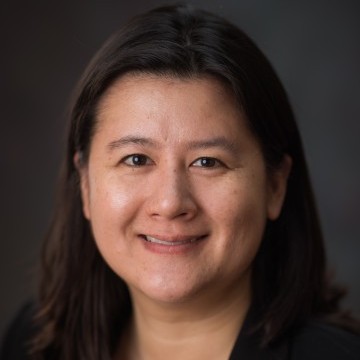
Jennifer Rosenbluth, MD, PhD
University of California San Francisco
Presented in memory of Catherine Hill
Developing therapeutic strategies for metastatic inflammatory breast cancer using patient-derived organoids
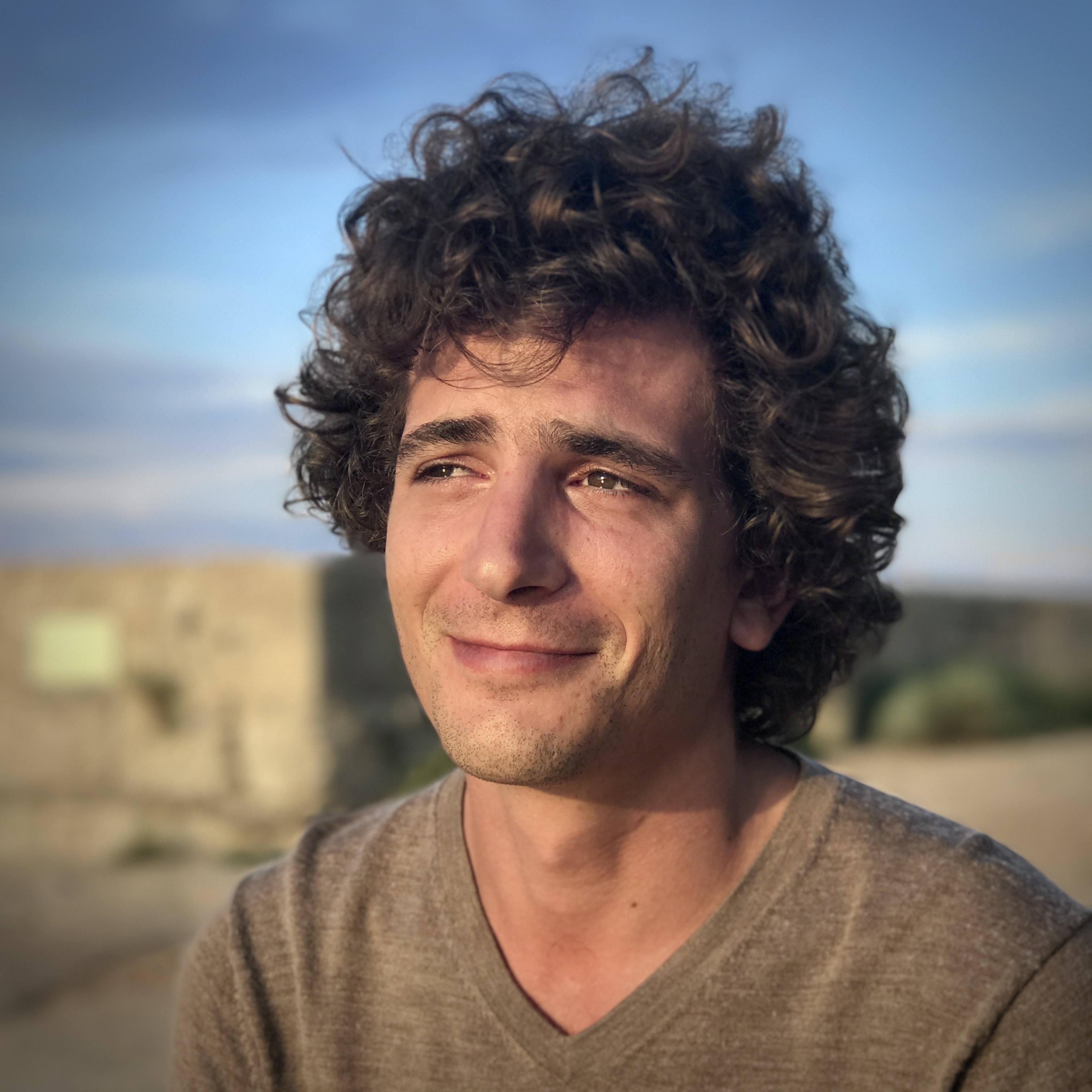
Vadim Jucaud, PhD
Terasaki Institute for Biomedical Innovation
Presented by the Moore/Smith Family in memory of Carol Smith, wife, mother, friend and advocate
Microengineered approach to develop personalized monoclonal antibodies for metastatic breast cancer treatment

Daniel Hollern, PhD, BS
The Salk Institute for Biological Studies
Presented by The Orlando Metsquerade in memory of Caitlin Kosma, wife, mother, friend and advocate
Using B cells to eliminate TNBC liver metastases

Adrian Lee, PhD
University of Pittsburgh, UPMC Hillman Cancer Center
Targeting RET for the treatment of breast cancer brain metastasis

Blake “Eason” Hildreth, DVM, MS, PhD
University of Alabama, Birmingham
Targeting the CSF1R/PU.1 axis and PU.1/BET super-enhancer regulome in breast cancer bone metastasis

Julie Di Martino, PhD
Icahn School of Medicine at Mount Sinai
Targeting dormant breast cancer cells with ACE inhibitors

Nathan Reticker-Flynn, PhD
Stanford University
Targeting lymph node-induced immune tolerance to treat metastatic breast cancer

Lou Song, PhD
University of Virginia
Oncogenic TRIM37 is a new driver of metastasis in triple negative breast cancer patients

Tae-Hyung Kim, PhD
University of New Mexico
Harnessing cell mechanotype to regulate the immune evasion of highly metastatic breast cancer cells

Reva Basho, MD
Cedars-Sinai Medical Center Samuel Oschin Comprehensive Cancer Institute
Presented by Metavivor Facebook Fundraisers
Tucatinib in Combination with Pembrolizumab and Trastuzumab for Patients with HER2+ Breast Cancer Brain Metastases

Isaac Chan, MD, PhD
UT Southwestern Medical Center
Presented by #Lindasbug: A VW Beetle Fundraiser in Memory of Linda Kreizenbeck
Using natural killer cells to eliminate breast cancer metastases

Jessica Christenson, PhD
University of Colorado Anschutz Medical Campus
Presented by Metavivor Facebook Fundraisers
Repurposing Lung Microenvironment Targeted Therapies for the Treatment of Established Breast Cancer Lung Metastases

Erin Howe, PhD
University of Notre Dame-Harper Cancer Research Institute
Presented in memory of Erin Remme by Minneapolis Metsquerade
Targeting endosomal trafficking to enhance immune recognition of breast cancer brain metastases

Natasha Hunter, MD
University of Washington
Presented by Metavivor Facebook Fundraisers
Tissue and liquid biopsy for breast cancer patients with bone-only metastases

Dennis Jones, PhD
Boston University
Presented by Metavivor Facebook Fundraisers
Targeting breast cancer plasticity and immunosuppression in metastatic lymph nodes

Srinivas Malladi, PhD
UT Southwestern Medical Center
Presented in Honor of Abbey Rapoport
Targeting vulnerabilities of immune-evasive HER2+ Breast Adenocarcinoma Metastasis Initiating Cells

Diwakar Pattabiraman, PhD
Geisel School of Medicine at Dartmouth
Presented in memory of Dee Dee Miller by Play: CLE to Cure: MBC
Differentiation therapy for metastatic breast cancer

Shreyas Rao, PhD
The University of Alabama
Presented by Metavivor Facebook Fundraisers
Engineered biomimetic hydrogels to probe metastatic tumor cell cluster–brain microenvironment interactions facilitating tumor progression

Thu Truong, PhD
University of Minnesota, Masonic Cancer Center
Presented by MetaRaise DENJPA in Memory of Our Friend Patty Ann Baldwin
Progesterone receptor reprograms metabolic pathways to drive therapy resistant populations in metastatic breast cancer

Yun Zhao, PhD
University of Notre Dame
Presented by Metavivor Facebook Fundraisers
Targeting the pitfall of chemo-immunotherapy: Immunosuppressive myeloid cells induced by apoptosis

Guizhi Zhu, PhD
Virginia Commonwealth University
Presented by Southwest Florida Metsquerade in Memory of Amanda DeFiebre
Multi-epitope/di-adjuvant co-delivering albumin-binding vaccines (Medico-AlbiVax) for the combination immunotherapy of metastati

Stacy Blain, PhD
The Research Foundation of the State of New York, SUNY Downstate Medical Center
Presented by #LightUpMBC and Moore Fight Moore Strong in memory of Jessica Moore
p27Kip1: A game changing target in metastatic breast cancer

Fumito Ito, MD, PhD
Roswell Park Comprehensive Cancer Center Health Research Inc
Presented by Southwest Florida Metsquerade in Memory of Karin Petrocelli
In situ radio-immunotherapy to maximize the engagement of cross-presenting dendritic cells to treat metastatic breast cancer

Bethany Kerr, PhD
Wake Forest School of Medicine
Presented in Honor of Beth Fairchild and Her Service to Metavivor Research and Support
Profiling combinatorial treatment response in early and late bone metastatic breast cancer

Traci Lyons, PhD
University of Colorado Anschutz Medical Campus
Presented by Northwest Arkansas Metsquerade In Memory of Erin Leland
Targeting therapeutic vulnerabilities of endocrine therapy resistant ER+ metastatic breast cancer

Steffi Oesterreich, PhD
University of Pittsburgh
Presented by Facebook Fundraisers
Targeting mesothelial – tumor cell interaction to treat invasive lobular cancer metastases

Selvarangan Ponnazhagan, PhD
The University of Alabama at Birmingham
Presented by Metavivor Facebook Fundraisers
Co-targeting immunosuppression and skeletal pathology for metastatic breast cancer therapy

Pranela Rameshwar, PhD
Rutgers New Jersey Medical School
Presented in honor of Tami Bowling and METAvivors of NJ
Preventing epigenetic-mediated DNA repair induced by bone marrow niche cells to eliminate drug resistance

Brad St Croix, PhD
National Cancer Institute
Presented by Monica Hill’s Be Bold and Behold, In Loving Memory of Monica Hill and Jasmine Charles
Improving the therapeutic index of ADCs targeting metastatic breast cancer

Alana Welm, PhD
University of Utah
Presented by 2020 New York Fashion Week in Memory of Halli Lannan
FORESEE: Functional precision oncology for metastatic breast cancer: a feasibility trial

Danny Welch, PhD
University of Kansas Medical Center Research Institute, Inc.
Presented by #Cancerland in Memory of Champagne Joy
BMRS1 MSD: A potential new inhibitor of breast cancer metastasis
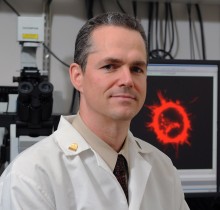
Stuart Martin, PhD
University of Maryland School of Medicine
Presented by the We "Neeta" Cure Fundraiser in Memory of Neta Meier
Targeting Tau-induced microtubule stabilization to reduce outgrowth of metastatic tumors

Nancy Lin, MD
Dana-Farber Cancer Institute
Overcoming Treatment Resistance in Breast Cancer Brain Metastases

Bolin Liu, PhD
Department of Genetics Stanley S. Scott Cancer Center School of Medicine Louisiana State University Health Sciences Center
Presented in Memory of Cecilia “CeCe” Curry, METAvivor Board Member
IGF-2 in Herceptin refractory HER2-positive breast cancer

Paul Lockman, PhD
West Virginia University
Timing of radiotherapy and chemotherapy to improve drug effect in brain metastases of breast cancer

Deepali Sachdev, BSc, MSc, PhD
Regents University
Presented by 2019 NYFW + #Cancerland in memory of Champagne Joy
Development of natural killer cell based tri-specific killer engagers (TriKEs) as novel immunotherapy for metastatic breast canc

Robert Weinberg, PhD
Whitehead Institute for Biomedical Research
Mechanisms of Acquired Adaptation of Disseminated Breast Cancer Cells

Fei Xing, PhD
Wake Forest University
Treating breast cancer brain metastasis with immune checkpoint inhibitor and c-Met targeting agent

Massimo Cristofanilli, MD
Northwestern University
Presented In Memory of Karen Presswood, Co-Founder of METAvivor
Unravelling New Cytokine-Mediated Mechanisms to Enhance Response to CDK4/6 inhibition in ER+/HER2-Metastatic Breast Cancer

Andrew Ewald, PhD
Johns Hopkins University, School of Medicine
Presented In Memory of Avis Halberstadt, Co-Founder of Metavivor
Targeting the survival pathways required by established breast cancer metastases

Carol Lange, PhD
University of Minnesota
Presented In Memory of Rhonda Rhodes, Co-Founder of Metavivor
Targeting Activated Progesterone Receptors in Metastatic Breast Cancer

Prasanna Alluri, MD, PhD
UT Southwestern Medical Center at Dallas
Presented in honor of Erin Remme by Minneapolis Metsquerade
Identifying Therapeutic Vulnerabilities in RB1-negative, ER-positive Breast Cancers

Lucia Borriello, PhD
Albert Einstein College of Medicine
Presented by 2019 New York Fashion Week
Targeting the Mechanism of Re-Dissemination and Metastasis in Stage IV Breast Cancer

Joshua Drago, MD
Memorial Sloan Kettering Cancer
Presented by METAvivors of New Jersey
The intestinal microbiome and response to chemoimmunotherapy in patients with metastatic triple negative breast cancer (MTNBC)

Mick Edmonds, PhD, MS
UAB School of Medicine
Presented In Memory of Kristin Todd
A novel strategy targeting SRC tyrosine kinase for breast cancer metastasis

Colt Egelston, PhD
City of Hope
Presented In Memory of Angie Powell by Northwest Arkansas Metsquerade
Bispecific monoclonal antibodies for treatment of advanced breast cancer

Jeremy Force, DO, MA
Duke University
Presented In Memory of Kristie Godwin Rolan by Triangle Metsquerade
Discovery and validation of putative oncogenic ROS1 alterations in breast cancer

Jamie Fornetti, BA, PhD
Huntsman Cancer Institute, University of Utah
Presented by Abbey Rapoport
Novel RON Inhibitors for the Treatment of Metastatic Breast Cancer
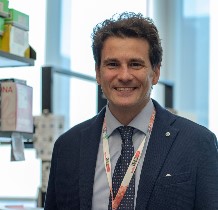
Antonio Giordano, MD, PhD
Medical University of South Carolina
Presented In Honor of Michael Kovarik by 2019 New York Fashion Week
Phase 1 clinical trial of Polo-like kinase 1 inhibition with nab-paclitaxel in TP53 mutated metastatic triple negative breast ca

Sheheryar Kabraji, BMBCh
Dana-Farber Cancer Institute
Presented by 2019 METAbash
Targeting drug-resistant quiescent cancer cells in breast cancer brain metastases

Jungwoo Lee, PhD
University of Massachusetts Amherst
Tissue-engineered bone to determine the impact of chemotherapy-induced premature aging in breast tumor metastasis

Michael Lukey, PhD
Cornell University
Presented by Minneapolis Metsquerade in honor of Erin Remme
Targeting the unique metabolic profile of brain metastases in breast cancer
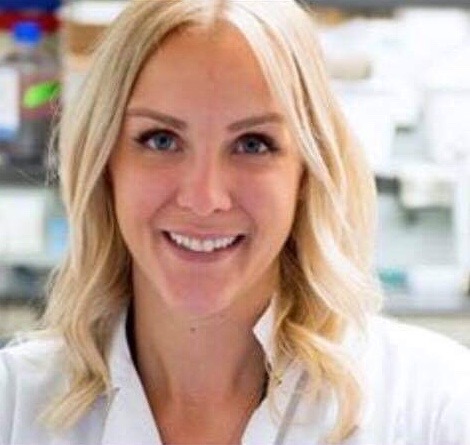
Ashley Makela, PhD
The Institute for Quantitative Health Science and Engineering, Michigan State University
Presented In Memory of Connie Cadwell by Miles4Metavivor
Understanding extracellular vesicle trafficking in established breast cancer metastases: In vivo tri-modal imaging provides long

Madeline Oudin, BSc, MSc, PhD
Tufts University
Presented by METAribbon Challengers
Investigating how obesity-driven changes in the tumor microenvironment promote metastatic outgrowth and chemoresistance in metas

Lijuan Sun, PhD
Cold Spring Harbor Laboratory
Presented In Memory of Rebecca McNally Gilden - Blessed mother, wife, daughter, engineer, friend and breast cancer advocate
Reprogramming innate-adaptive immune interactions to eliminate metastatic breast cancer

Stuart Martin, PhD
University of Maryland School of Medicine
Presented In Memory of Wendy Taylor by Northwest Arkansas Metsquerade
Reducing the risk of chemotherapy-induced scattering of metastatic triple-negative breast tumors

Danny Welch, PhD
University of Kansas Cancer Center
Presented In Memory of Valerie Wright by Northwest Arkansas Metsquerade
New inhibitors of breast cancer metastasis

Andrei Bakin, PhD
Roswell Park Cancer Center
A Novel Combination Therapy to Improve Treatment of Metastatic Breast Cancer

Sanchita Bhatnagar, PhD
University of Virginia School of Medicine
Targeting the mechanisms of oncogenic TRIM37 in metastatic triple negative breast cancer

Rolf Brekken, PhD
UT Southwestern
Pleiotrophin as a driver of the immune metastatic niche

Andrew Brenner, MD, PhD
Mays Cancer Center
Presented In Memory of Tarah Harvey by Minneapolis Metsquerade
Permeability of Sacituzumab Govitecan in Breast Cancer Brain Metastases

Barbara Fingleton, PhD
Vanderbilt University
Presented In Memory of Destiny Rivera and Stephanie Sunday by Orlando Metsquerade
Tumor targeting of an immune super-activator in male and female metastatic breast cancer

Barry Hudson, PhD
University of Miami
Presented in memory of Amanda De Fiebre by Southwest Florida Metsquerade
Therapeutic targeting of RAGE in metastatic breast cancer

Yibin Kang, PhD
Princeton University
Presented by The Fraternal Order of Eagles
Preventing Regulatory T cell Induction to Enhance Immunity Against Breast Cancer Metastases

Stephen Kron, MD, PhD
The University of Chicago
Mechanisms determining local and systemic anti-tumor immune response after metastasis-directed image-guided radiation combined w

Sandra McAllister, PhD
Brigham and Women's Hospital; Harvard Medical School
Presented In Memory of Lauren Smoke by Chicago Metsquerade
A new approach to identifying effective therapeutic strategies that eliminate de novo and recurrent stage IV triple-negative bre

Yusuke Shiozawa, MD, PhD
Wake Forest University
An osteolytic bone lesion-targeted radiopharmaceutical for bone metastatic breast cancer

Zena Werb, PhD
University of California, San Francisco
Presented by METAvivor Facebook Fundraisers
Identification of Novel Cell Targets for Metastatic Breast Cancer Therapy

Jing Yang, PhD
University of California, San Diego
Overcoming therapy resistance in TNBC metastases through targeted inhibition of Periostin

Dihua Yu, PhD
The University of Texas
Presented In loving memory of Tiffany Foust and Kriss Fierro by Monica Hill's Be Bold and Behold
Impeding Breast Cancer Brain Metastasis by Blocking CCR2+ Myeloid Cell Infiltration